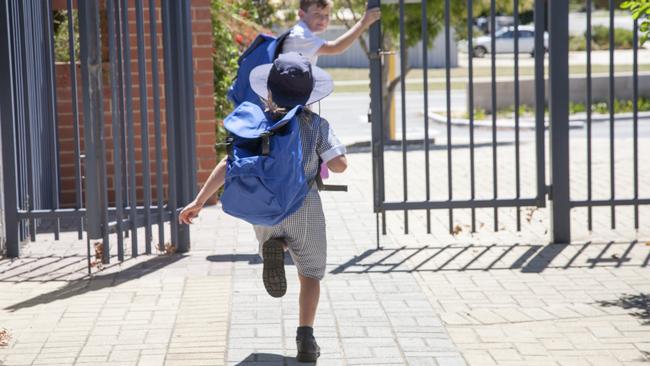Students forget their sums as summer holidays widen gap between rich and poor
Some experts are keen on stimulating alternatives to the boredom of the break.

The northern summer holidays have just begun, but it is a busy morning at Cadoxton Primary School, in Barry, an industrial town in Wales. It runs a summer program for hard-up children, providing meals and activities over the holidays. As youngsters run laughing into the cafeteria for breakfast, their parents saunter out, some visibly relieved.
In the popular imagination, school summer holidays conjure up a picture of carefree youthful exploration. But many parents rely on the term-time services that schools give their offspring, such as supervision and meals. Come the holidays, they can suddenly find their schedules and budgets stretched. Researchers also say that the long break often sets back children’s learning, and that children from poorer backgrounds are disproportionately affected.
The vast majority of the world’s school calendars include summer holidays. Their length ranges from three weeks in South Korea to three months in the US, Italy and Latvia. The 19th-century origins of these holidays are hazy. It is popularly believed they are a hangover from the West’s agrarian past, when families needed their children’s help in the fields in summer; but many historians think the evidence for this is thin.
Experts talk of “summer learning loss”, in which children return to school having forgotten some of what was taught the year before.
“It is pretty clear that kids forget things over the summer,” Harris Cooper, of Duke University in North Carolina, says. A study in America’s south in 2008-12 found that on average children lost more than a quarter of their school-year learning over the summer. Other studies have found that children regress over the summer even in Belgium, Britain, Canada, Germany and Malawi, all of which have much shorter summer breaks than the US.
The impact appears to vary by socioeconomic class. Many poor children fall behind their wealthier peers over the holidays. “Summer is the most unequal time of the year,” says Matthew Boulay of the National Summer Learning Association, a US NGO. Well-off parents can fill the gap left by school, keeping their children stimulated with summer camps, trips abroad or private tuition.
Holidays can be a financial strain, too. In countries where children receive free school meals, summer means bigger grocery bills. Households where both parents work have to pay for extra childcare, too.
Natasha Cockram, who runs the summer program at Cadoxton Primary School, worries that many children in Barry will spend most of the summer indoors, glued to their screens, because parents are both unable to afford childcare or activities and loath to let them roam unsupervised. “I get very bored at home,” one six-year-old says. “There’s nothing to do except sit on the sofa and watch TV.”
A study in 2007 in Baltimore, Maryland, claimed summer learning loss could account for up to two-thirds of the “achievement gap” between rich and poor children by the age of 14 or 15.
More recent US research, however, argues that early-childhood development might play a bigger role. Experts suggest three types of solutions to the problems posed by the long summer holidays: extending school years; spreading holidays to other times of the year; and more state-provided summer-holiday activities.
South Korea is an extreme test-case for the first approach. It has the world’s longest school year and shortest summer break. For many students, even the short holidays offer little respite, since most are enrolled in private tuition, often in a hagwon (crammer). Three in 10 parents surveyed last month said they planned to increase the number of hagwon classes their children would have to attend this summer.
Sure enough, South Korean students score brilliantly on comparative measures such as the OECD’s PISA test of maths, science and reading skills. But there is a cost. They also have a miserable time cramming for high-stakes exams, and a higher incidence of mental-health problems than children in other rich countries.
Another objection to lengthening the school year is that it would strain public-education budgets. Teachers, who cherish their long breaks, would doubtless object unless they were paid more.
Boulay says there is little public support anywhere for abolishing the summer break. He suggests that taxpayers or philanthropists should subsidise summer activities. He thinks children should be encouraged to develop skills not emphasised in the school curriculum. He also wants to see summer courses used as a laboratory for innovative education techniques. “We need more learning, but not necessarily more schooling.”
David Quinn, of the University of Southern California, says even simple interventions like posting reading materials to homes, or sending parents text messages reminding them to make sure their children are reading, can reduce summer learning loss. Lenore Skenazy, founder of Free-Range Kids (which campaigns for children to have more time unsupervised), says letting children play on their own in parks teaches them important skills. She laments that parents wildly overestimate the risks their children face outdoors (such as being kidnapped by strangers, which is vanishingly unlikely) and so prevent them from exploring.


